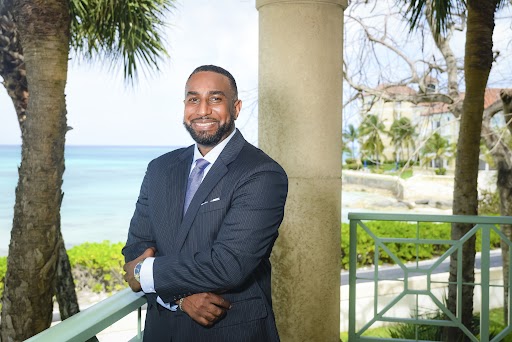At the recent Institute of Chartered Accountants of the Caribbean’s 40th Annual Conference, PwC Bahamas Advisory Leader, Kevin Cambridge, joined a stellar panel line-up to discuss ‘Expectations for ESG’ including the new mandatory ESG reporting standards from the International Sustainability Standards Board (ISSB). Issued on Monday, ISSB published its first two finalised standards: S1 General Requirements for Disclosure of Sustainability-related Financial Information; and S2 Climate-related Disclosures. The new standards are a part of a global trend transitioning from voluntary to mandatory reporting.
When speaking at the conference for PwC in the Caribbean, Kevin said, “With pronouncements handed down from the likes of IFRS the question then is, what will now be codified in local regulations? The answer is that we need to come together. Individually we – governments and businesses – are looking at the world through the lens of our own country, The Bahamas, Barbados, Jamaica, Trinidad etc. It’s not as impactful to think individually when you sit across the table and have very targeted regulatory discussions that ultimately impact all of us across the Caribbean and the globe.”
The standards are intended to be the foundation for a comprehensive global baseline of sustainability disclosures specifically focused on the needs of investors and the financial markets. These should be welcomed by investors and businesses given the complex reporting landscape. For many businesses across the Caribbean that are in the infancy of their sustainability journey, now is the time to begin the process. For businesses more advanced that have already adopted industry specific and Task Force on Climate-Related Financial Disclosures (TCFD) recommendations, they will be in a great place to apply IFRS S1 and IFRS S2.
As well as the new standards, the panel discussed more broadly the impact of excluding Sustainable Development Goals (SDGs) as an investor and business – there’s a mutual dependency. Kevin commented, “An investor or company choosing to invest that doesn’t show, prove, or are simply not being strategic by incorporating SDGs into their business, will find themselves being unable to invest in certain opportunities. This also complicates matters as the question then becomes…how do you measure, benchmark and report the ESG framework? If businesses want to add value, they must make both social impact and SDG alignment a part of their core business.” Businesses that take an active role in leading this transformation and position SDGs at the heart of operational decisions will be better placed to harness emerging market opportunities, manage risks and achieve a Net Zero future.
PwC has committed to transforming its business model to decarbonise its value chain, increasing transparency, and supporting the development of robust ESG reporting frameworks and standards. The PwC network is also engaging its clients and suppliers to support them to tackle their climate impact. Kevin concluded, “At PwC we believe ESG has to be a priority for every government and business across the Caribbean.” (PR)

